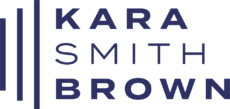Imagine walking into a Starbucks and asking strangers to buy your coffee.
It seems preposterous, right? Yet every day, so-called marketers email people they don’t know, asking for money or a commitment.
And that makes people very uncomfortable.
It’s also why cold emails and calls have a 1% conversion rate.
You must build an audience before you can monetize it. Building an audience is about sharing good news with your WHO/ICP/persona about things they care about, which — spoiler alert! — isn’t necessarily what matters most to you.
You can write the best campaign with a clear value prop that addresses a specific need, but it’s pointless if the person you send it to does not care. For instance, my mother-in-law is a lovely woman, but she doesn’t buy transportation management software.
You must spend the time and energy building your audience. Someone once told me, “My CFO asked me how we’re turning the money we’re spending on marketing into revenue within a week.” In B2B, that’s not how it works! You can’t pull a list from ZoomInfo, send an email, and get instant customers.
Building an audience is about forging a relationship with people. No one cares about you until you give them a reason to know, like, and trust you. And then, and only then, will they consider buying from you.
It’s about exchanging the value you have with this audience. By the way, “value” does not mean features and benefits or your position in your company and why you’re so great. “Value is helpful information that matters most to your audience, which you should give away.
When you give away value, you build trust, which in turn builds relationships. Those relationships become your audience.
Ask yourself, “What value am I going to give away, free of charge?”
Maybe it’s an index on the marketplace, industry insights, or economic data. Companies like Redwood Logistics, Cass, and Freight Waves are considered experts because they regularly and freely share invaluable information like this with their audiences.
They understand that giving away valuable content builds credibility, so later, when they do make an ask, their audience is much more receptive to a sale.
You can also use someone else’s content and share your expert opinion about it. Your thought leadership will be valuable if it is unique and offers an original take on an industry trend.
What you don’t want to do? Only talk about why your company or product is the best. No one likes the guy at the party who only talks about himself (selfish) and never shares interesting stories (boring).
Remember, you can’t monetize an audience you haven’t built. Take the time to build it first by regularly sharing good news about what they want and what matters to them: industry-related content, educational materials, thought leadership, etc. Giving away that value will build trust, credibility, and, ultimately, your audience.
